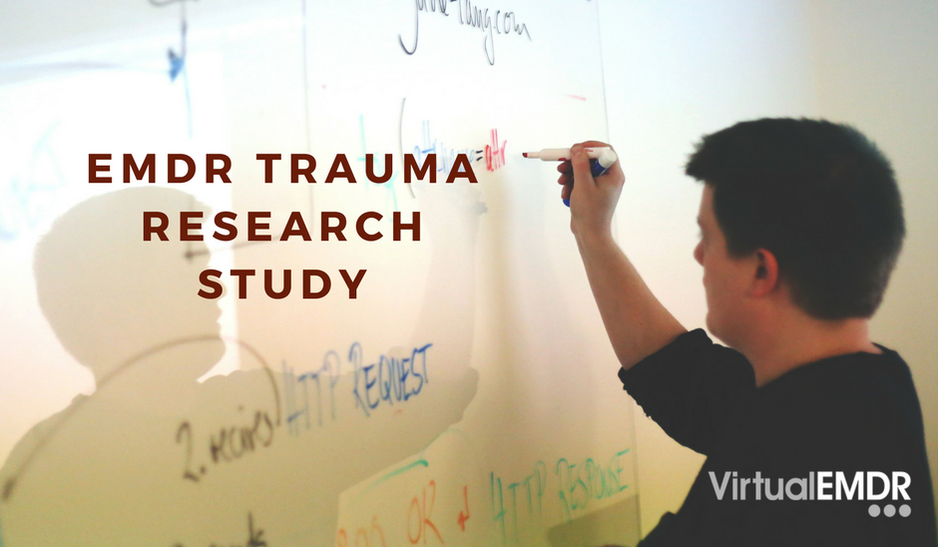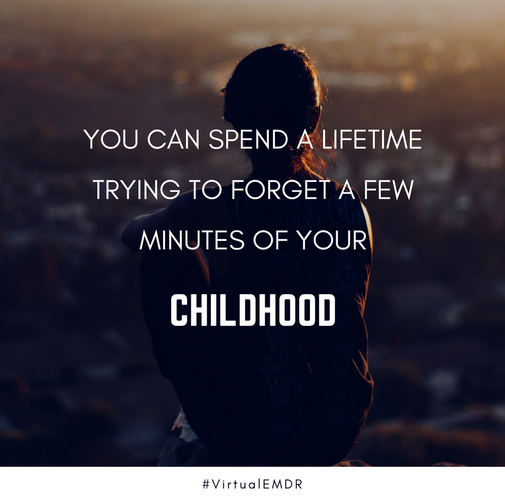VIRTUAL EMDR BLOG
Do You Have These Hidden Symptoms of Trauma and PTSD?
03 Jun 2017
![]() Tag: PTSD
Tag: PTSD

Do you have symptoms of PTSD and Trauma that you are unaware of? And are PTSD symptoms making a mess of your day-to-day life and happiness?
PTSD affects the well-being of millions of people around the world. It is only once you know that you have a problem, that you can take some concrete actions to fix it and get well.
Take this short PTSD Self-Assessment Test and find out.
PTSD affects the well-being of millions of people around the world. It is only once you know that you have a problem, that you can take some concrete actions to fix it and get well.
Take this short PTSD Self-Assessment Test and find out.
This test is based on a Trauma and PTSD self-assessment test from the American Psychiatric Association.
The purpose of this test is to help you gauge how many (or for that matter how few) PTSD symptoms you are have and also to offer some basic suggestions on how to get some treatment if it’s appropriate.
Let’s get started.
The purpose of this test is to help you gauge how many (or for that matter how few) PTSD symptoms you are have and also to offer some basic suggestions on how to get some treatment if it’s appropriate.
Let’s get started.
TEST INSTRUCTIONS
*Answer yes or no for each of the following questions. Each yes answer is one point. Keep track of your points on a scrap of paper.
Let's begin.
1) Have you experienced, witnessed, or been exposed to what you consider to be a traumatic event?
Yes/No
2) During this traumatic event, did you experience or witness serious injury or death, or the threat of injury or death?
Yes/No
3) During the traumatic event did you feel an intense sense of helplessness, fear, and/or even horror?
Yes/No
4) Do you ever have times when you feel as if you are re-living the event, or that it is happening again in real time?
Yes/No
5) Do you often experience unwanted intrusive thoughts or mental images about the traumatic event?
Yes/No
6) Do you feel intense physical and/or emotional distress when something reminds you of the traumatic event, whether it’s something you think about or something in you see?
Yes/No
7) Do you ever find yourself having recurring nightmares or disturbing dreams about the traumatic event?
Yes/No
8) Do you do your best to avoid people, activities, people, or even locations that remind you of the traumatic event?
Yes/No
9) Do you find yourself trying your best to avoid thoughts, emotions, or conversations that remind you of the traumatic event?
Yes/No
10) Since the trauma occurred do you feel distant from other people or have difficulty trusting them?
Yes/No
11) Do you have gaps in your memory or find yourself unable to remember something important about the traumatic event?
Yes/No
12) Since the trauma occurred do you have difficulty regulating, experiencing or showing emotions?
Yes/No
13) Since the trauma occurred do you feel less interested in activities or hobbies that you used to enjoy?
Yes/No
14) Do you feel negative about your future, including feeling it will not be “normal”, or that you won’t have a career, marriage, children, or a normally expected life span?
Yes/No
15) Since the traumatic event occurred do you have a hard time getting to sleep or even staying asleep?
Yes/No
16) Since the traumatic event occurred do you feel emotional, irritated, or have outbursts of anger?
Yes/No
17) Since the traumatic event occurred do you have difficulty concentrating?
Yes/No
18) Since the traumatic event occurred do you feel guilty because others died or were hurt during the event but you survived?
Yes/No
19) Since the traumatic event occurred do you often feel jumpy or startle easily?
Yes/No
20) Since the traumatic event occurred do you often feel hyper-vigilant, meaning that you are constantly feeling and acting ready for any kind of threat or danger?
Yes/No
21) For any of the symptoms you’ve recognized above, has your experience of them lasted for longer than one month?
Yes/No
22) Do the symptoms you have interfere with your day-to-day routines such as school, work, or social activities?
Yes/No
Let's begin.
1) Have you experienced, witnessed, or been exposed to what you consider to be a traumatic event?
Yes/No
2) During this traumatic event, did you experience or witness serious injury or death, or the threat of injury or death?
Yes/No
3) During the traumatic event did you feel an intense sense of helplessness, fear, and/or even horror?
Yes/No
4) Do you ever have times when you feel as if you are re-living the event, or that it is happening again in real time?
Yes/No
5) Do you often experience unwanted intrusive thoughts or mental images about the traumatic event?
Yes/No
6) Do you feel intense physical and/or emotional distress when something reminds you of the traumatic event, whether it’s something you think about or something in you see?
Yes/No
7) Do you ever find yourself having recurring nightmares or disturbing dreams about the traumatic event?
Yes/No
8) Do you do your best to avoid people, activities, people, or even locations that remind you of the traumatic event?
Yes/No
9) Do you find yourself trying your best to avoid thoughts, emotions, or conversations that remind you of the traumatic event?
Yes/No
10) Since the trauma occurred do you feel distant from other people or have difficulty trusting them?
Yes/No
11) Do you have gaps in your memory or find yourself unable to remember something important about the traumatic event?
Yes/No
12) Since the trauma occurred do you have difficulty regulating, experiencing or showing emotions?
Yes/No
13) Since the trauma occurred do you feel less interested in activities or hobbies that you used to enjoy?
Yes/No
14) Do you feel negative about your future, including feeling it will not be “normal”, or that you won’t have a career, marriage, children, or a normally expected life span?
Yes/No
15) Since the traumatic event occurred do you have a hard time getting to sleep or even staying asleep?
Yes/No
16) Since the traumatic event occurred do you feel emotional, irritated, or have outbursts of anger?
Yes/No
17) Since the traumatic event occurred do you have difficulty concentrating?
Yes/No
18) Since the traumatic event occurred do you feel guilty because others died or were hurt during the event but you survived?
Yes/No
19) Since the traumatic event occurred do you often feel jumpy or startle easily?
Yes/No
20) Since the traumatic event occurred do you often feel hyper-vigilant, meaning that you are constantly feeling and acting ready for any kind of threat or danger?
Yes/No
21) For any of the symptoms you’ve recognized above, has your experience of them lasted for longer than one month?
Yes/No
22) Do the symptoms you have interfere with your day-to-day routines such as school, work, or social activities?
Yes/No
SCORING YOUR TEST
Go back through your test and add up the number of questions that you answered “yes” to.
- 1-3 = few or no symptoms of Trauma and PTSD
- 4-9 = It is likely you have some form of Trauma/PTSD
- 10 or more =you have many symptoms of Trauma and PTSD
SO WHAT NOW?
Taking a quiz like this can help give important clues about how we are feeling about ourselves, the overall state of our mental health, and also how well we are dealing with our relationships with the people around us. A high score on this test may indicate that we are in need of some sort of mental health treatment.
If you have a lot of the symptoms above, you may want to take the next step by seeing a doctor, reading some books about Trauma and PTSD, getting involved in a support group, or starting PTSD therapy like CBT Therapy or EMDR Eye Movement Therapy.
The Virtual EMDR Program works excellent for eliminating the majority of the symptoms of Trauma and PTSD. You can learn more here.
Also, you can get informed! There are plenty of resources online. Even this website (Virtual EMDR) has plenty of information on PTSD on our BLOG. You can also learn a lot from the United States National Center for PTSD.
Don’t waste what you have learned today from taking this test. If you are struggling with PTSD and Trauma take some sort of next step to better your life and get yourself feeling well.
If you have a lot of the symptoms above, you may want to take the next step by seeing a doctor, reading some books about Trauma and PTSD, getting involved in a support group, or starting PTSD therapy like CBT Therapy or EMDR Eye Movement Therapy.
The Virtual EMDR Program works excellent for eliminating the majority of the symptoms of Trauma and PTSD. You can learn more here.
Also, you can get informed! There are plenty of resources online. Even this website (Virtual EMDR) has plenty of information on PTSD on our BLOG. You can also learn a lot from the United States National Center for PTSD.
Don’t waste what you have learned today from taking this test. If you are struggling with PTSD and Trauma take some sort of next step to better your life and get yourself feeling well.










I have always been very fearful. Even as early as elementary school . Abusive brother, boyfriend of my sister kissing and dry humping. Missed school alot due to feeling shy, fat and ugly.
I was in a very bad car accident when I was 17yrs old I sustained multiple injuries including minor brain damage, I am now 41yrs of age and are suffering the after affects from the accident like a proffeser doctor told me I would when I saw him aged 19yrs he said when you get to late 30s early 40s you will suffer with arthritis and he was right i have rheumatism depression anxiety panic attacks ibs severe migraine and other health issues it affects my life so bad. ??
I didn't realize it was this bad, it's very unnerving.
I agree Dorie. This test is scary accurate.
Hit a great many things right in spot
220